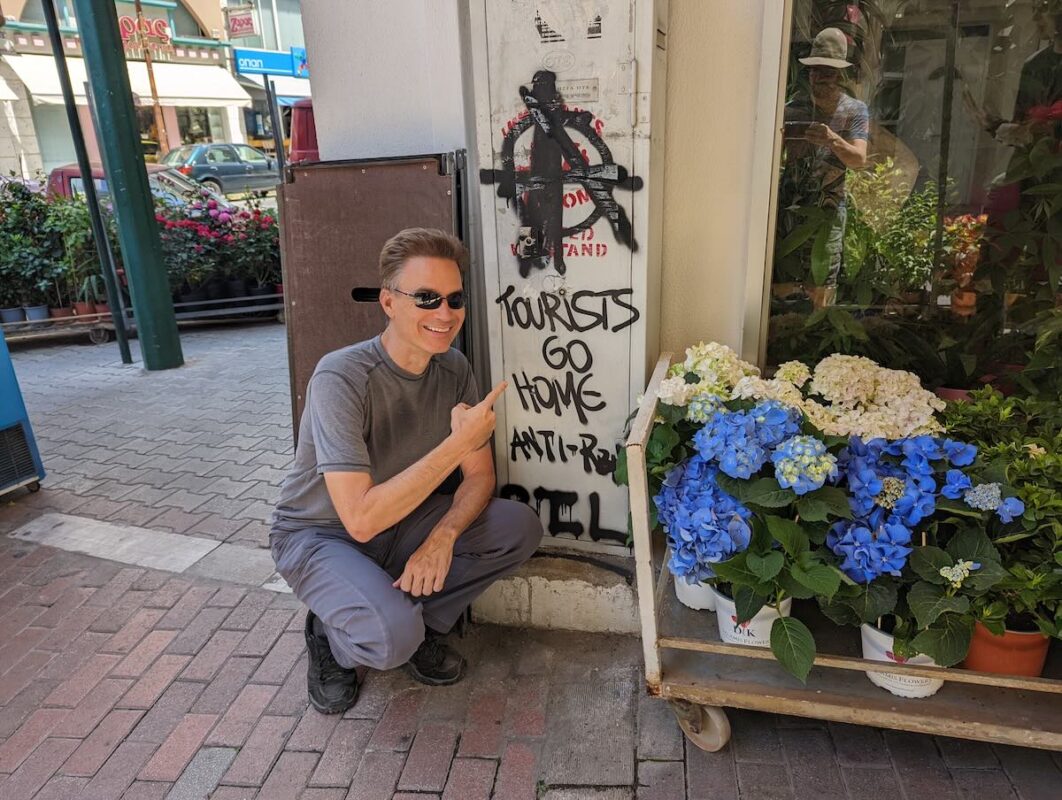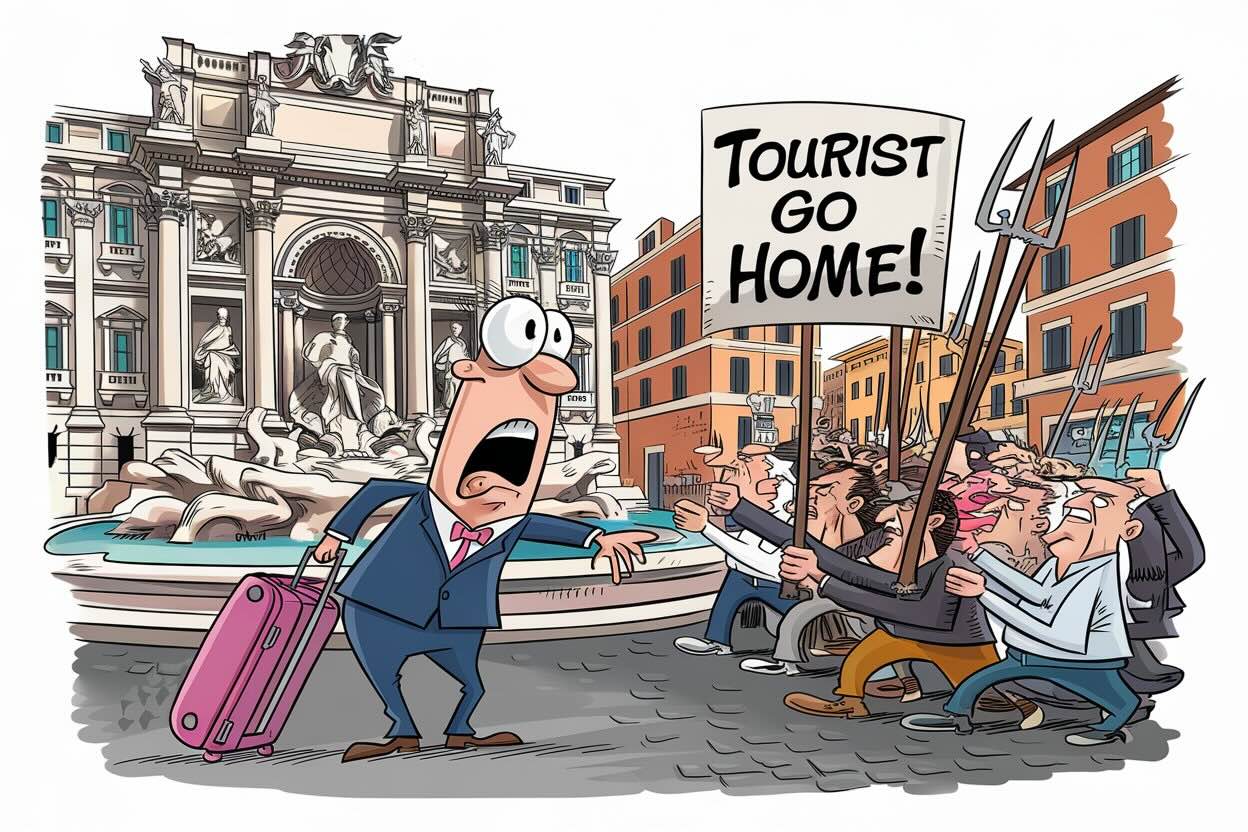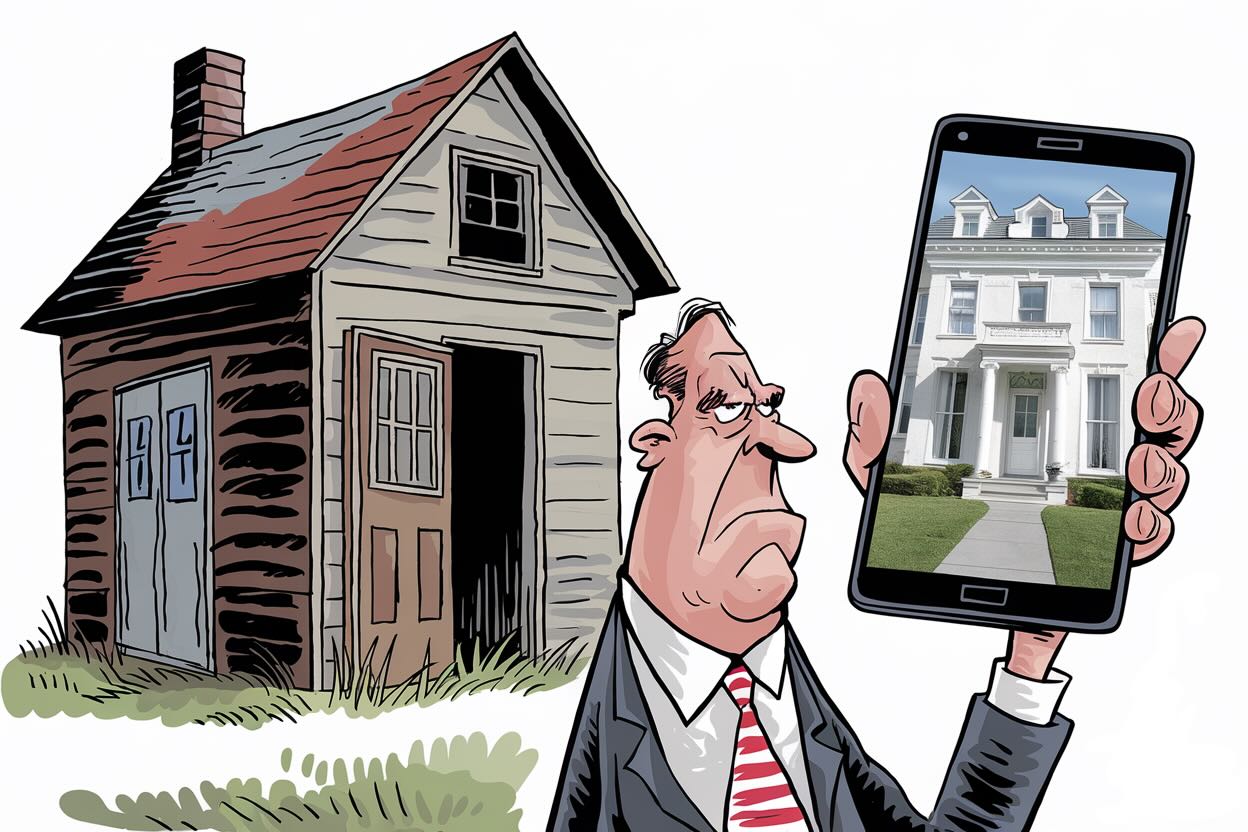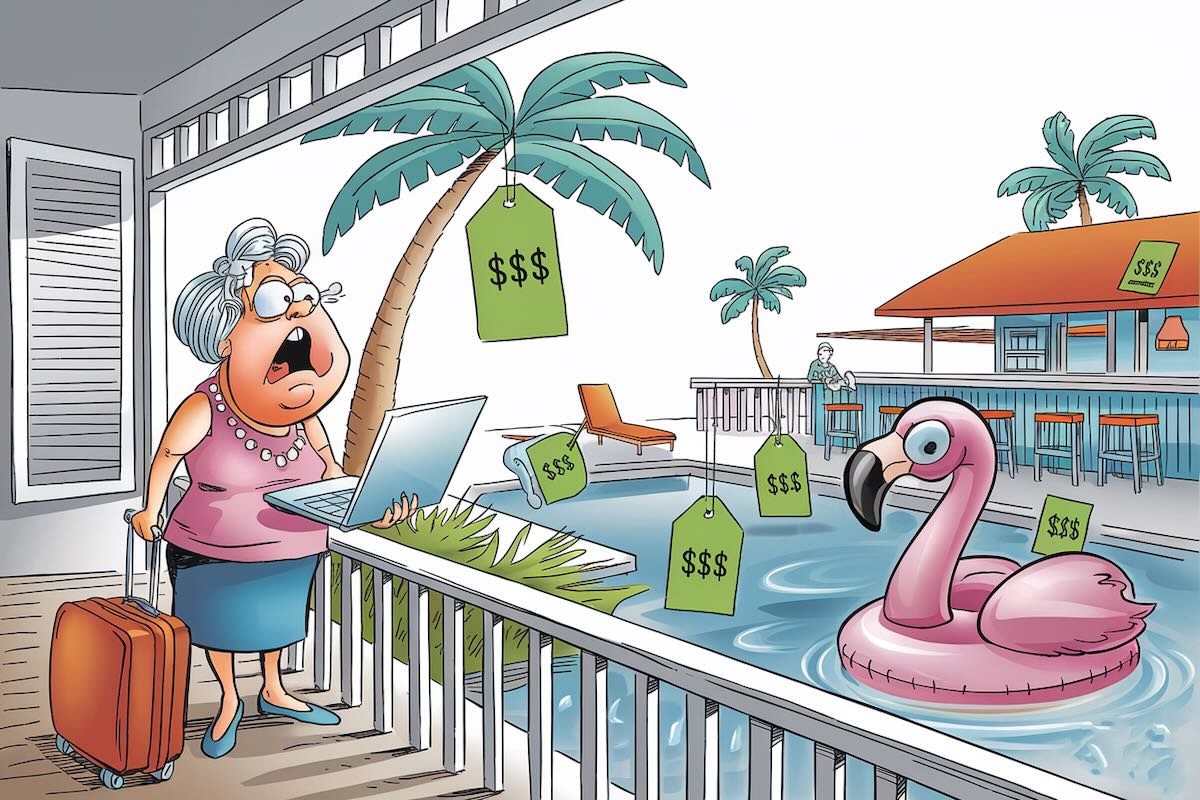When I lived in Athens a few years ago, I stumbled across a wall freshly spray-painted with the words: “TOURISTS GO HOME!” I was so stunned by it that I had to take a picture. Do they really hate tourists?
Today, I probably wouldn’t even notice it. Not after the recent anti-tourism protests in Barcelona and after Venice imposed a $ 5-a-day fee for day visitors.

Tourists are — how do I say this politely? — disliked. And with good reason. More than half of travelers say they’ve behaved out of character while on vacation, according to a recent internal survey conducted by the luggage storage company Radical Storage. That can include posing in inappropriate ways with statues, trespassing or disrespecting local customs. And 42 percent even admit to breaking laws while abroad.
I warned about bad tourists two years ago. I hate it when I’m right.
“American tourists are known to be loud and demanding,” says Adeodata Czink, an etiquette expert. “And they did not disappoint last summer.”
It hasn’t stopped. I live in Dublin, where large groups of American, German and Brazilian tourists clog the narrow streets of Temple Bar and drink themselves to oblivion every night. It’s shameful.
But there’s good news. The locals aren’t angry at all visitors, and if you happen to be on the blacklist, there’s an easy way to get off, and stay off. And yes, you can still visit Paris and Rome.
Don’t worry, they don’t hate all tourists
First, a little good news: The locals don’t hate all tourists.
“The backlash is against rowdy bachelor and bachelorette parties who are interested mostly in getting drunk,” explains Don Jones, a managing director for Andrew Harper, a travel membership site. “And it’s against Intagrammers swarming certain places and disregarding common courtesy to get the right shot.”
If that’s not you, then you already have an advantage.
If it is you, and you happen to be reading this insightful column, stop being you. Consume alcohol in moderation, or better yet, stay sober and enjoy the new place you’re visiting. Also, I hate to be the bearer of bad news, but no one cares about your Instagram account. Sheathe your smartphone and take in the view with your own eyes.
How to behave like a good tourist (and maybe be loved by the locals)
You don’t have to be one of those visitors this spring break or during the upcoming summer travel season. Here are some proven strategies for being loved by your destination:
- Go where you’re appreciated. Now is the time when many Americans are considering a summer vacation destination. If a place is openly hostile to visitors, avoid it. “There is a growing trend in which travelers make travel decisions based on political, social and cultural beliefs,” says Berkita Bradford, chair of the hospitality and tourism administration department at North Carolina Central University.
- Show some respect. Be a responsible traveler, says Nicole Cueto, a travel advisor with Fora Travel. “Practice sustainable tourism by minimizing your environmental impact and supporting eco-friendly initiatives,” she advises. That includes reducing waste, conserving water, and respecting wildlife.
- Know the drill. One of the best ways to improve your image is to brush up on the local customs of your destination traveling. “Show genuine interest in the local culture,” says Nick Leighton, an etiquette expert and co-host of the weekly podcast, Were You Raised By Wolves?. “It generates goodwill and helps avoid causing offense inadvertently.”
You’ll also want to pack two important things, says etiquette coach Jamila Musayeva: your patience and kindness.
“Treat the locals with the same courtesy you’d expect in your own hometown,” she says. “When things don’t go as planned, like a delayed flight or a wrong meal order, stay calm and handle it with grace. Your attitude not only affects your experience but also leaves an impression on those around you.”
That’s not to say you’re entirely responsible for everyone hating on tourists. Destinations are working toward a detente, too.
How one destination is fighting back against bad tourists
Some places are already doing something beyond charging for admission to their city centers. Back in 2020, when misbehaving tourists were starting to become a major problem, Visit Idaho introduced a program designed to attract more responsible and sustainable visitors to the state.
Its campaign, called Travel With Care, emphasized caring for the state, caring for others and caring for yourself. Practically speaking, Idaho encouraged travelers to protect the land and outdoor spaces, be considerate of others, and prioritize personal safety.
There are no measurable results of Idaho’s efforts to promote kindness to the land and fellow travelers. But that’s exactly the point. No one is defacing the walls of the ski lodges with “TOURISTS GO HOME!” in Sun Valley, nor has anyone suggested charging tourists to walk down Main Street in Boise.
Rather, tourism officials say these actions have helped both the tourism industry and tourists. “It’s gone a long way to encourage everyone to work together to keep travelers and residents happy,” says Natalie Jushinski, a tourism manager at Visit Idaho.
The best advice: Avoid the crowds
Maybe the best way to avoid having a substandard travel experience is to go in the opposite direction of the crowd. James Thornton, CEO of Intrepid Travel, told me 80 percent of travelers visit just 10 percent of the world’s tourism destinations. “There are so many amazing alternative destinations to choose from that will give you a fresh take on the world if you’re willing to go beyond the classic bucket list attractions,” he says.
That doesn’t necessarily mean avoiding popular places. I love Venice and Rome and Paris, and I think everyone should see these places at least once.
But if you go, visit during the off-season and stay away from the groups flocking to the popular museums and restaurants.
“Show an interest in the people,” advises Thomas Swick, author of “Falling into Place: A Story of Love, Poland and the Making of a Travel Writer.” “This entails leaving the well-trodden paths and exploring out-of-the-way neighborhoods – every city has them – and experiencing the everyday life of the place.”
Who knows, he says. Maybe you’ll strike up a conversation that will tell you more than any landmark.
“And instead of abuse, you may get an invitation for coffee,” he says.
Now that’s how to travel.



